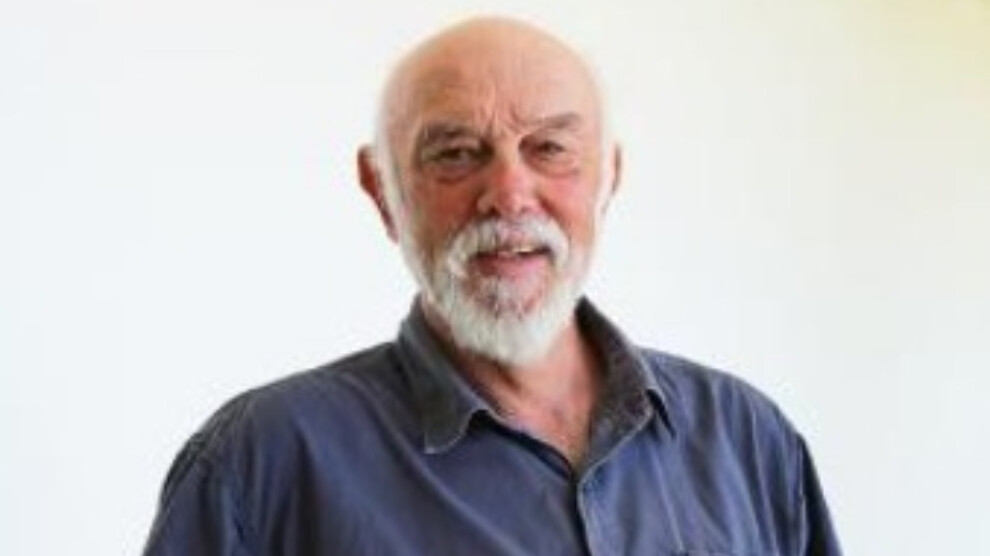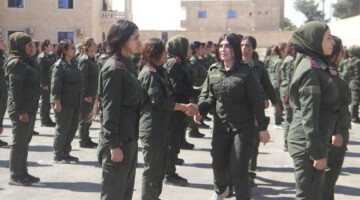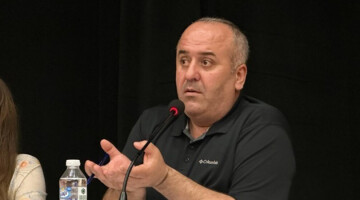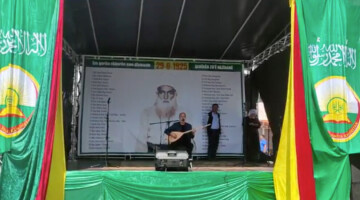At an April 16 webinar hosted by Kurdish solidarity groups and the Kurdish community, Australian historian, writer and retired university professor John Tully described Turkey today as a "prison house of nations”.
"Since its foundation in 1923, the Turkish Republic has been a prison house of nations. Abdullah Öcalan, the imprisoned leader of the Kurdish Workers’ Party (the PKK) is the living symbol of resistance to that state’s oppression of the Kurdish people. If there is to be any progress towards a lasting and just peace in Turkey, he must be released from prison to head up negotiations.
"I say, ‘prison house of nations’, because the Turkish Republic inherited the genocidal ideology of the Young Turk rulers of the dying Ottoman Empire.
"After 1915, the Young Turks embarked on the physical annihilation of the Armenians and other Christian peoples in Anatolia and European Turkey. Earlier, the authorities carried out large-scale resettlement aimed at restricting non-Turks to five percent of the population of towns in Anatolia. I should add that it is still a crime in Turkey to draw attention to the genocide that claimed the lives of up to one and a half million Armenians, perhaps half a million Assyrians, and hundreds of thousands of Greeks.
"One of the first acts of the new Turkish Republic, under Mustapha Kemal, was to ban the Kurdish language. This was part of a grand plan to forcibly assimilate the Kurds, using methods developed in the earlier Armenian and Assyrian genocides. The aim was to create an ‘ethnically pure’ Turkish state. From the 1930s, the Turkish rulers insisted that the Kurds did not exist; that they were ‘Mountain Turks’.
"But the Kurds are not Turks. They are stubbornly, proudly, attached to their customs, their land, and their language.”
Professor Tully added that successive generations have resisted this oppression.
"Since 2012, the Peoples’ Democratic Party (HDP) has used what began as a comparatively liberal period to advance Kurdish interests and reach out to the Turkish population. Alas, since the failed coup in 2016, the Turkish government has slammed the window shut.
"In 2015, it had unilaterally cut off peace talks with the PKK and resumed the war in eastern Anatolia. According to the Turkish government, the PKK is a terrorist organisation, and they have convinced several Western governments, including Australia, that this is the case.
"We must insist, however, that the PKK is not terrorist—that it is in fact a national liberation organisation and the latest iteration of a tradition of Kurdish armed resistance that began after the creation of the Turkish state.”
Professor Tully explained that Australia currently lists 25 organisations as terrorist.
"Twenty-four of them fully deserve the listing. They are all violent Islamist outfits that indiscriminately target civilians, and include ISIS, Jemaah Islamiyah, Boko Haram, and Al Qaida.
"We should note that the Rojava Kurds of northern Syria—assisted by the PKK—gave their blood to destroy ISIS, the most significant of these barbarous groups."
The PKK, Professor Tully said, should not be on the terror list.
"It poses absolutely no threat to the lives and well-being of the citizens of the countries which have banned it—including Australia. It was listed here in 2005, over two decades after the PKK launched armed struggle in Turkey. Unsurprisingly, it was listed immediately after the then Turkish Prime Minister, Recep Tayyip Erdoğan, made an official visit to Australia.”
He added that this listing has been a source of great mental anguish for Australian Kurds. It has added to the popular misconception of Kurds as lawless, violent people. In August 2010, it led to police raids on Kurdish houses and community centres in Perth, Melbourne, and Sydney. The raids found nothing and were a clear case of hysterical overkill by police and politicians. Our Kurdish community is law-abiding and hard-working, with a strong commitment to democracy.
The PKK should be de-listed as a ‘terrorist group, Professor Tully argued, pointing to the decision of the Belgian Court of Cassation decision finding that the PKK cannot be classified as a terrorist organisation because it is a party in a non-international armed conflict or civil war where the use of legitimate military force is allowed.
"Regardless of the hypocrisy of the world’s governments, people—the Kurds included—are entitled to resist oppression by force of arms. The PKK, in this regard, is akin to the African National Congress and the South West African People’s Organisation, which waged armed struggled against the South African apartheid regime.
"Let us not forget that apartheid once seemed an impregnable fortress blocking the road to freedom and democracy. Many of the ANC leaders were in exile or in prison. One of them was Nelson Mandela, the venerated leader of millions of oppressed black and coloured South Africans, who was locked up for 18 years in the Robben Island Prison.
"There is a stark parallel here between Mandela and Abdullah Öcalan, the leader of millions of Kurds, who has been locked up for 22 years on Imrali Island in the Sea of Marmara.
"Thousands of Kurdish political prisoners, including Leyla Güven, the imprisoned former co-chair of the HDP, have staged lengthy hunger strikes to protest Öcalan’s imprisonment and to demand the re-opening of peace negotiations with the PKK.
"The Turkish government cannot reasonably insist that it does not negotiate with ‘terrorists’ because it previously negotiated with the PKK in 2013-15, and the PKK had called many unilateral ceasefires.
"As in the past, the world has looked away, but we have grounds for modest optimism. Part of the reason for this has been the electrifying armed struggle of the Kurds of Rojava, who first lifted the siege of Kobanȇ in January 2015 and then went on to smash the Daesh barbarians of the so-called Islamic State.
"We should note that while the men and women fighters of the YPG and YPJ are fighting for their homes and families, they are also motivated by the ideas of Abdullah Öcalan, which stress gender equality—and this in a region which has traditionally been a stronghold of repressive patriarchy.
"We should note that we here in Australia can learn from that struggle.”













